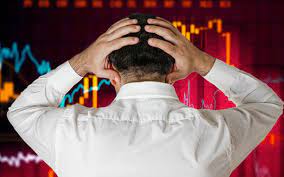
Thống kê
| 1882744 | |
| Số người đang online | 1 |
| Số truy cập hôm nay | 155 |
| Số truy cập tháng này | 57885 |
Quảng cáo
Nickel price up 250% in less than 24 hours: Wrong big short caused Chinese tycoon to suffer billions of dollars in losses in just 1 day

|
A Chinese tycoon who has held a large short position in nickel futures is facing billions of dollars in losses as the metal's price spikes, a source familiar with the matter told Bloomberg.
Xiang Guanda is the chairman of the world's largest nickel producer Tsingshan Holding Group Co., and is known as the "Big Shot" in China's commodity trading circles. He built a short position on nickel futures on the London Metal Exchange (LME) through his firm. With a large loss, Xiang is considering whether it is possible to completely divest from this investment.
Nickel prices surged beyond all records, to above $100,000 a tonne on March 8, partly due to short sales by Tshingshan and its brokerage firms in "forced buying". After that, the LME exchange temporarily suspended nickel trading.
The source said that while the details of the size of the loss Mr. Xiang suffered so far are unclear, Tsingshan's short position on the LME corresponds to a volume of 100,000 tonnes of nickel. This bet can be even bigger if positions taken through intermediaries are included. Xiang started building a short position in part because he wanted to hedge against rising nickel production and believes that the upside in nickel prices will cool down this year as well.
Therefore, Mr. Xiang could suffer a loss of more than 2 billion USD in a day at the time when the nickel price rose the most on March 7. Moreover, this is larger than any losses the tycoon has suffered since he started building a short position late last year through Tsingshan.
Speaking to China's Yicai news agency, Xiang said Tsingshan has not had any problems with its nickel business. "We received a lot of phone calls today. Tsingshan is a good business, our positions and operations have not had any problems," he said.
On March 8, the LME suspended nickel trading after the metal recorded an unprecedented price increase in the history of the commodity market. Nickel has rallied sharply for weeks, driven by concerns about supply disruptions from Russia, the world's largest exporter of refined nickel.
The lack of supply in the market is becoming a problem exacerbated by the presence of an unknown trader. According to transaction data, this individual controls about 50-80% of the nickel warehouse warrants monitored by the LME last month. In recent months, trading and mining giant Glencore has been the largest holder of nickel by volume. However, the company did not comment on this information.
This week, the price of nickel has witnessed a galloping momentum, increasing by as much as 250% in less than 24 hours and reaching an all-time high of $101,365 a tonne. This trend was driven by traders holding short positions, including Tsingshan and their brokerage firms. Tsingshan struggled to receive a flood of margin calls to his brokerage firms. This group is having difficulty paying the deposits in recent days.
On Monday, one of the brokers of Tsingshan, a unit of China Construction Bank, missed payment of hundreds of millions of dollars in margin on positions in nickel. However, LME extended the payment period for them instead of declaring default. Sources close to the broker said that the broker paid the above amount.
The LME announced on March 8 that the transactions that took place in Asia time before the suspension, when the price rose from about $50,000 to above $100,000 per ton, would be cancelled. However, even with Monday's closing price of $48,063, Tsingshan's losses run into the billions.
Investors are extremely interested in nickel as demand for this metal increases sharply because it is an important ingredient for electric vehicles. This week's price spike has mainly occurred on the LME and many traders expect nickel prices to cool down once this margin call has resolved.
Even so, this week's short squeeze is likely to push prices higher for battery and stainless steel companies, eventually driving up prices of the daily commodity. Therefore, whether or not Tsingshan can shoulder the loss, higher nickel prices are still beneficial to its core business of producing nickel and stainless steel.
Refer to Bloomberg
|
Liên kết website
Hỗ trợ trực tuyến
-
 Liên hệ ngay.Email:ĐT: (08) 6682 3335 - Fax: (08) 6256 2218
Liên hệ ngay.Email:ĐT: (08) 6682 3335 - Fax: (08) 6256 2218
Ngày giờ hiện tại
13/9/2025
clock




